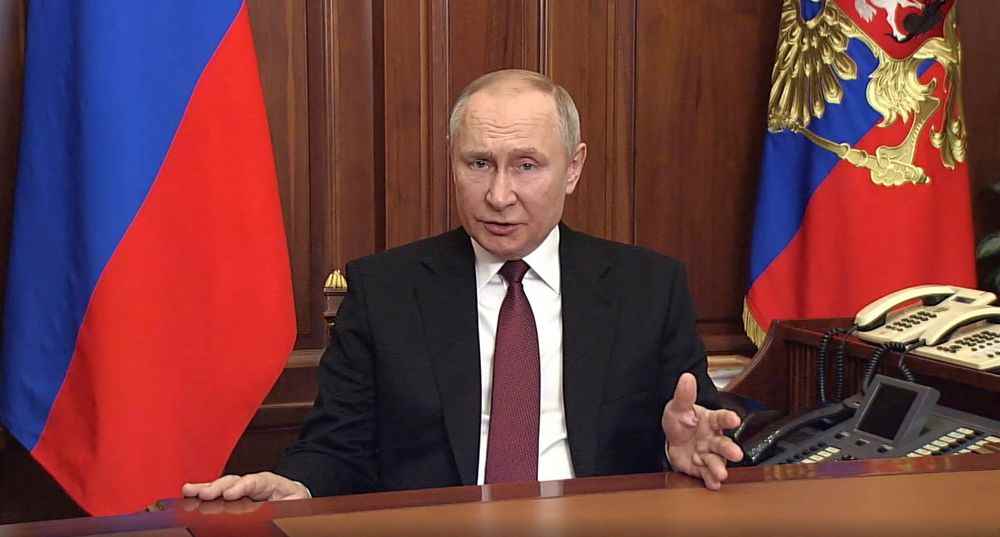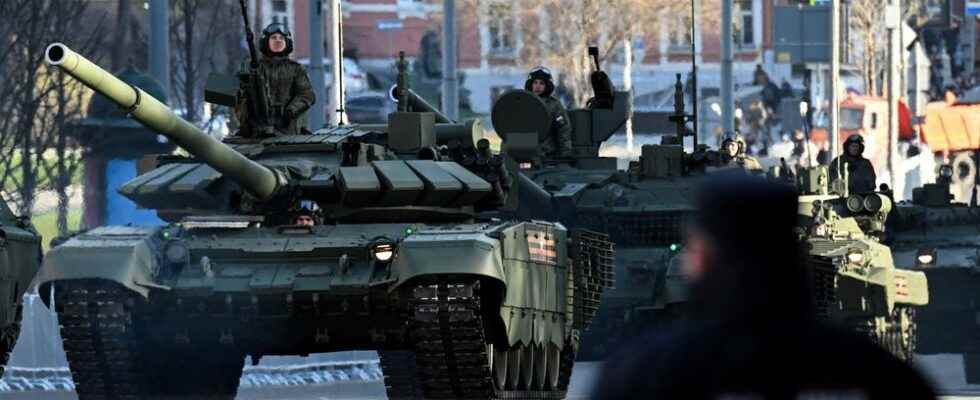On Monday, Russia will commemorate as every year the victory over Nazi Germany, the occasion of a large military parade in Moscow, on Red Square. In the midst of the war in Ukraine, the event is all the more important as Vladimir Putin will deliver a much-awaited speech. Throughout his reign, he made this memory of the Great Patriotic War an essential element of his policy, explains historian Andrei Kozovoi, author of Russia, Reforms and Dictatorships, From Khrushchev to Putinand a biography, Brezhnev, The Antiheropublished by Perrin.
L’Express: Why does Russia commemorate Germany’s surrender on May 9 and not May 8?
Andrei Kozovoi: It is primarily linked to the time difference, the capitulation is signed before midnight in Berlin, when it is already the 9th in Moscow. Stalin had warned that he was waiting for the reaction of the German forces to be sure of it, while a first capitulation was signed in Reims [le 7 mai, elle prévoyait justement un cessez-le-feu à 23h01 le 8]. However, this day was not declared a holiday in Russia under Stalin, worried that celebrations could overshadow it and lead to awkward questions, concerning its role from 1939 to 1941 [son pacte de non-agression avec les nazis] and on the scale of the first defeats against the Germans.
How does the focus on the Great Patriotic War overshadow the reality of World War II?
Historically, this is the conflict on the Eastern Front. But the Russians cultivate a certain ambiguity and present it as the only real war, the one which made it possible to truly defeat the Nazis, with the idea that it was the Soviets who liberated Europe. Gradually, the Great Patriotic War came to replace the Second World War. Russian textbooks give it a disproportionate share compared to other battlefields and mention Allied aid in a very limited way. This disproportion is explained by its balance sheet: 27 million Russian dead and thousands of cities destroyed. But it was especially at the time of Leonid Brezhnev that his cult was built, in a context of the Cold War. Just its name, which has no equivalent in the West, has something special: it is a necessarily heroic war, of good against evil.
A Russian T-72B3M tank and other military vehicles drive, May 4, 2022, towards Red Square for a rehearsal of the Victory Day military parade on May 9 in central Moscow.
Kirill KUDRYAVTSEV / AFP
Why this rise in power of the celebration of May 9 under Brezhnev (1964-1982)?
After Stalin’s death in 1953, under Nikita Khrushchev, part of his true story was revealed to the public: people started talking about 20 million deaths and not more than 7 million, bringing out a tragic dimension. The context then lends itself a cult of the Great Patriotic War, with strong social support. We start talking more and more about the fighters. Brezhnev establishes a monument to the unknown soldier. He will himself seek to cultivate an image of a veteran which does not correspond to his past as a political commissar. May 9 became a public holiday in 1965 and took on a very important military dimension from the 1970s. Especially since we are no longer in the ideology: it is a celebration that unites the generations at the same time as a legitimization of the regime as it would have defeated Nazism and saved Europe.
It was at this time that Vladimir Putin became an adult…
He will be very marked by this cult of the Great War and is only 22 years old when the 30 years of victory are celebrated. Before he came to power, under Boris Yeltsin, there was not this obsessive dimension of memory as a political instrument. The context does not lend itself to this: the country is experiencing very difficult times economically with the transition to capitalism and the liberalization of prices. Added to this is the war in Chechnya. This will favor the advent of Putin, without us knowing who he is. Little by little, we discover why the Great Patriotic War is so important to him. Her mother experienced famine and the blockade of Leningrad, during which she lost her second child. His father fought and was seriously injured. Since he came to power, and especially since the start of his third presidential term in 2012, his very conspiratorial and conservative view of history has increasingly guided his political actions. He himself becomes clearly obsessed with the idea of ”saving Russia” and fantasizes about an imperial past that he alone would be able to reconstruct. Based on his memories of the Brezhnev era, he thus developed a national narrative based on this cult of the Great Patriotic War, which in many respects justifies his policy.
What form does it take?
There was an evolution between his first two presidential terms, until 2008, and what comes after the annexation of Crimea on March 21, 2014. We then see a rise in power of this cult of Victory – it It is no exaggeration to speak of a form of civil religion, with its priests, its rituals, its symbols, and, inevitably, the crime of blasphemy. In this last area, we must remember the law of May 5, 2015, a particularly draconian memorial law, in preparation for years, which punishes up to five years of imprisonment all those who spread alleged lies about the role of the USSR during the Great Patriotic War. It is then explained that the non-aggression pact with the Nazis by logical considerations of Stalin, who would have had no other choice. Several people have been convicted on the basis of this law.

Vladimir Putin announcing a “special military operation” in Ukraine, February 24, 2022.
AFP
What political benefit does Putin derive from it?
This makes it easy to unify the state and its people, happy to evoke the memory of the ancestors in the war. Playing on this memory fiber is also a way of artificially bridging the gap between leaders and their followers. One of the key phrases we’ve been hearing since 2014 is “we can do it again”, implied: “the victory of 1945”. The economic context is not good and appointing an adversary to all Russians, by presenting him as a Nazi, plays on old stereotypes, anchored in the collective memory.
Why does the Kremlin insist so much on denazification to justify the war in Ukraine?
Its propaganda is a mixture of true and false. Ukraine’s history has dark sides. The most offensive term used by the Russians to demonize the Ukrainians is “banderists”, the supporters of Stepan Bandera. He led an organization that collaborated with the Germans and provided battalions for the Eastern Front. They committed abuses against the Jewish, Polish and Russian populations. Putin plays on this past, saying that the entire current Ukrainian regime is marked by this culture, which is absolutely false. It is true, however, that in 2010, ex-president Viktor Yushchenko led a highly controversial rehabilitation of Bandera.
How is the repression and then the dissolution at the end of 2021 of the Memorial foundation, which listed Soviet repression, the reverse of this rewriting of history?
It is the inevitable consequence of a State which sets itself up as the only possible voice to talk about history and does not tolerate any divergence. In Russia, we entered a war regime well before the 2022 invasion. We have to go back to Brezhnev to find such a system of censorship, for fear that the speech released under Khrushchev would lead to criticism of everything that made the basis of the scheme. Brezhnev, warned of the demands of a historian who had published nasty things, said at a Politburo meeting that it was necessary to prevent that “any garbage [puisse] consult the documents of the military archives and use them for a harmful purpose”.

–>
Interview by Clément Daniez
